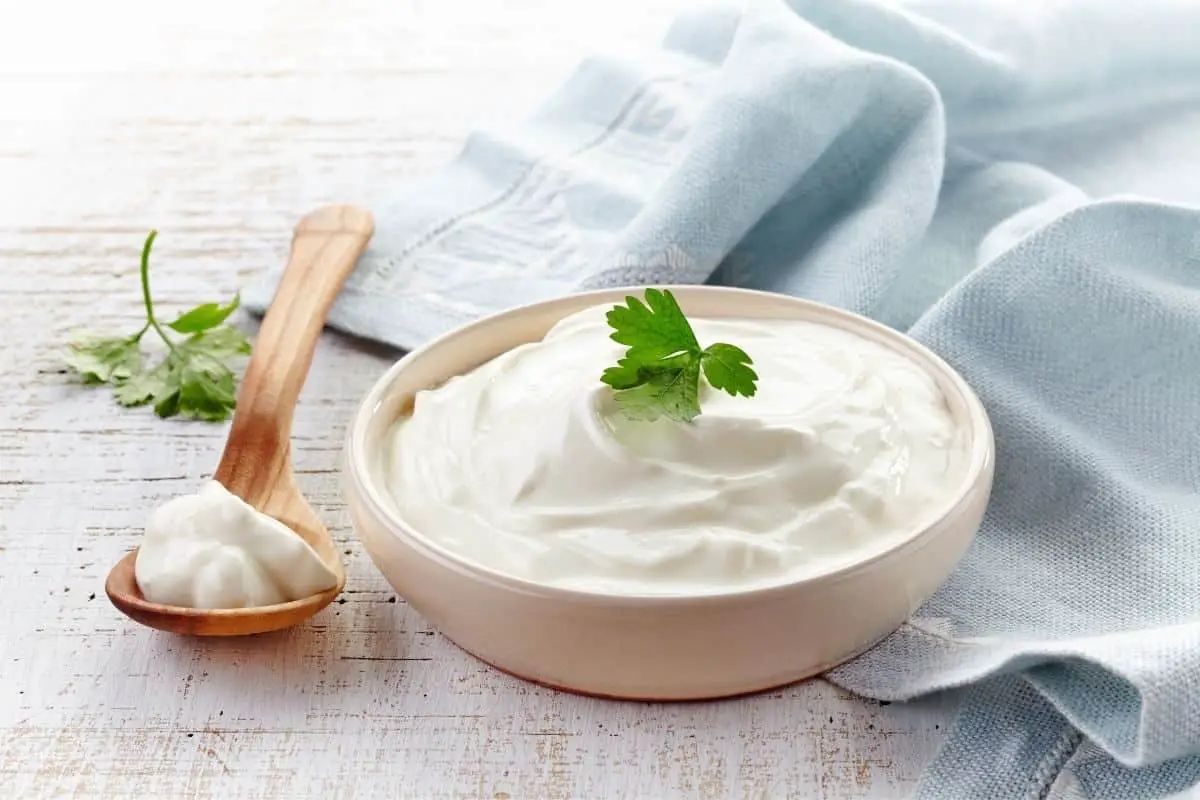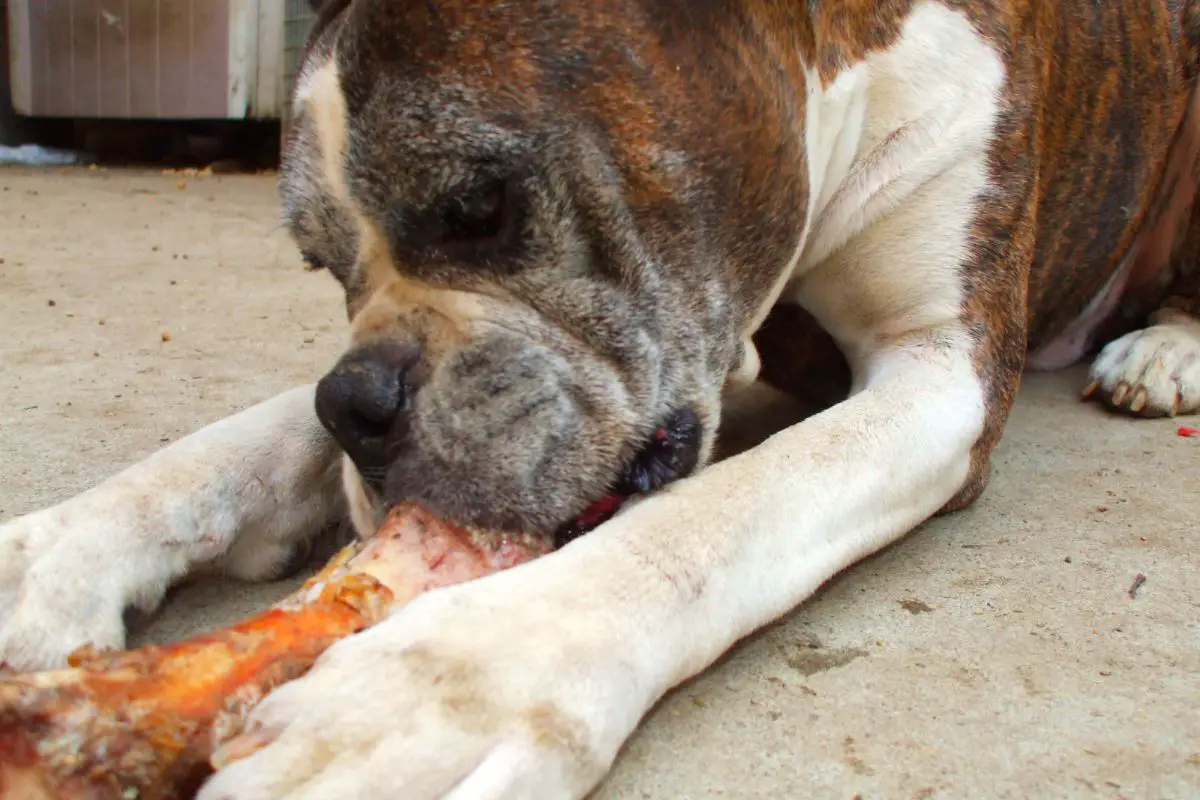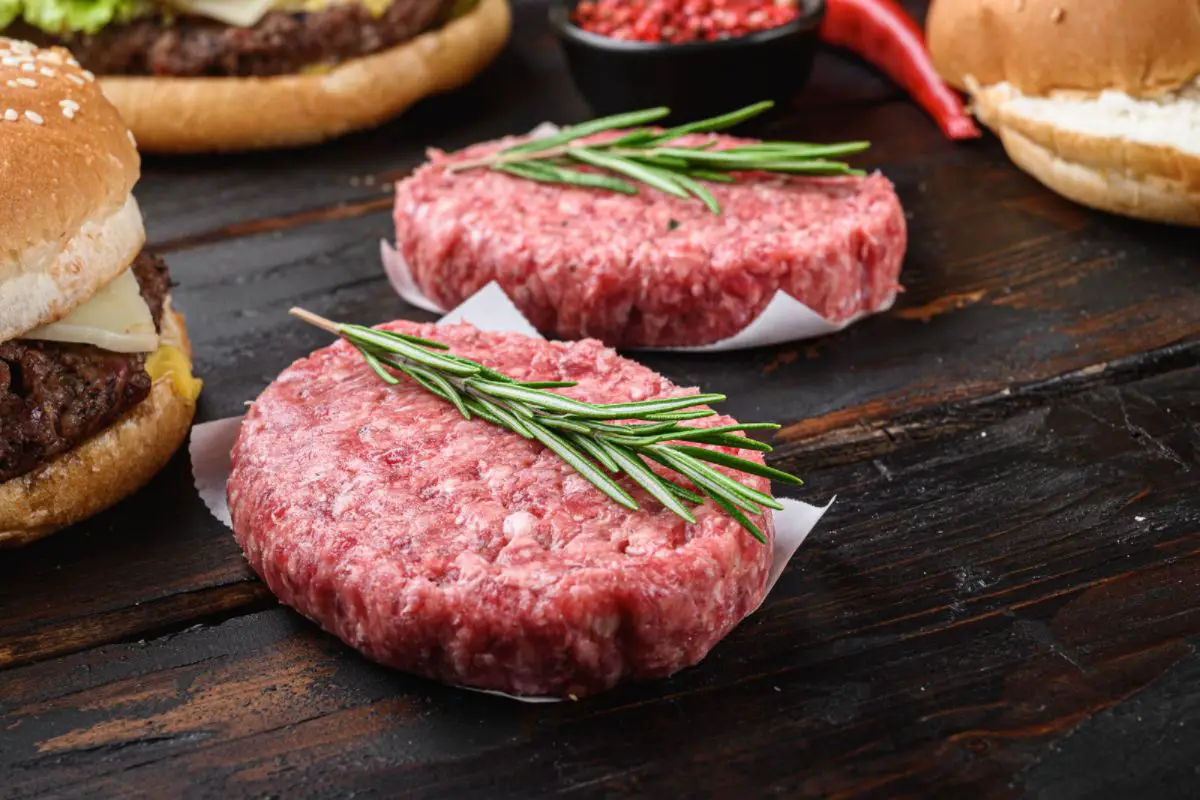This post contains affiliate links.
Sour cream is a delicious accompaniment to many meals, such as nachos or baked potatoes. It’s something that many of us really enjoy, so we might find it tempting to give it to our dogs as a treat as well. Giving dogs sour cream may not be such a good idea, however.
Dogs can eat sour cream, but many are lactose intolerant and may have an allergic reaction to it. Sour cream is also high in fat, so too much can make a dog overweight. You should never feed dogs anything with sour cream and onion or sour cream and chives because onions and chives are toxic to them.
For more information about whether or not you should give your dog sour cream and why you should never give him sour cream mixed with onions or chives, read on.
Table of Contents
Is Sour Cream Toxic to Dogs?
Sour cream is not toxic for dogs, which means your dog can safely eat it without his health being at risk. At the same time, dogs should still only eat sour cream in moderation because the excess amounts of lactose could lead to allergic reactions, including vomiting and diarrhea.
Let’s take a look at some of the downsides to feeding your dog sour cream.
Many Dogs Are Lactose Intolerant
The main reason why sour cream is not good for dogs to eat is that most dogs are lactose intolerant. This means that if they eat sour cream, either on purpose or by accident, they will likely suffer from some mild to severe gastrointestinal distress.
The symptoms of lactose intolerance in dogs are:
- Vomiting
- Diarrhea
- Flatulence
These symptoms will occur relatively quickly after a dog has eaten dairy products. You can help your dog recover by providing them with small amounts of dry food and plenty of water. While lactose intolerance generally resolves itself, in some cases, it can cause severe dehydration (especially in puppies or smaller dogs). When that happens, it’s best to consult with a veterinarian.
Too Much Sour Cream Can Cause Weight Gain
Another reason why sour cream should not be a regular part of your dog’s diet is its high fat content. 100 grams (3.5 oz) of sour cream has 20 grams (0.7 oz) of fat, which makes it clear that too much of it is going to make your dog pack on the pounds fairly quickly.
There are a multitude of problems that are caused by your dog being overweight. These can include diabetes, pancreatitis, and joint problems.
Can Sour Cream Be Good for Dogs?
Although there are some very clear reasons why you would not want to feed your dog sour cream (especially a lot of it), there are a few ways that sour cream can actually be good for dogs.
Sour cream, in moderation, can be good for dogs because it’s a source of calcium. Sour cream also contains a range of essential vitamins and minerals, including vitamin A, vitamin B, and magnesium.
However, this doesn’t necessarily mean sour cream can serve as a replacement for your dog’s daily nutritional needs. Instead, sour cream should only be consumed by dogs occasionally and in small amounts.
Let’s break down the reasons why sour cream can be beneficial to your dog, when administered in moderation.
Sour Cream Is a Source of Calcium
The most obvious benefit of sour cream for dogs is that it’s a source of calcium for them. Dogs need 1.25 grams (0.04 oz) of calcium for every 1000 kcal (4184 kJ) that they eat, although larger dogs will need more than this.
Sour cream has 110 mg (0.004 oz) of calcium per 100 grams (3.5 oz) of cream. Therefore, it’s not the best way to give calcium to your dog. You would have to give him lots of sour cream, and that could just make him sick.
There are better ways of making sure your dog gets the calcium he needs. You can feed him a proper canine supplement, or you can up his calcium intake with foods like chicken breast or plain yogurt (if your dog isn’t lactose intolerant).
Sour Cream Contains Vital Vitamins and Minerals
Another benefit of giving your dog some sour cream is the vitamins and minerals that the product contains. A serving of sour cream contains vitamin A and B, magnesium, and phosphorus. These are all great for your dog’s general health.
However, these vitamins and minerals are only found in very small amounts in sour cream. Therefore, feeding your dog sour cream in order to give him vitamins and minerals is not a good idea. If you want to ensure your dog is getting the vitamins and minerals he needs, make sure you also feed him high-quality dog food.
What Should I Do if My Dog Ate Sour Cream?
If your dog accidentally ate sour cream, you should monitor him closely for any adverse reactions, and ensure he’s properly hydrated. Sour cream will not kill your dog, but it can cause an upset stomach, vomiting, and diarrhea, as a result of the product’s lactose contents.
It’s important to keep an eye on your dog for the next few hours. If he has any gastrointestinal distress, provide him with plenty of fresh drinking water and encourage him to rest. Also, feed your dog small amounts of dry food until he gets his appetite back.
You’ll rarely need any vet intervention from the symptoms of lactose intolerance. However, if your dog does show the symptoms of dehydration, take him to the vet. These common symptoms are:
- Dry nose and gums
- Loss of skin elasticity
- Panting
- Sunken eyes
- Loss of appetite
- Lack of energy
Can Dogs Eat Sour Cream and Onion?
Dogs should not eat sour cream and onion products. Foods containing onion, or products that are sour cream and onion flavored, like chips, can be extremely harmful because onions are toxic to dogs.
There is a compound in onions called N-propyl disulfide, which causes anemia in dogs. This chemical breaks down the red blood cells, meaning the red blood cells cannot effectively carry oxygen around the body, and can even be fatal. If you suspect your dog has eaten onion, you should seek veterinary assistance immediately.
Every part of an onion is toxic to dogs, and cooking does not lessen this toxicity. Powdered onion is also toxic and is a common ingredient in a lot of human foods. You should be wary of giving your dog anything that might be flavored with onion powder.
Can Dogs Eat Sour Cream and Chives?
Dogs can’t eat sour cream and chives because chives are part of the onion family, and are just as toxic to dogs as regular onions. Both fresh and dried chives are dangerous, and all parts of the chive plant can be equally as harmful, so it’s best to refrain from exposing your dog to chives.
Consider Yogurt as an Alternative to Sour Cream
If your dog is not lactose intolerant and you want to give it some dairy to boost his calcium levels, consider adding natural, plain yogurt to his diet as a safer alternative. It’s better than sour cream in many ways: it is lower in fat, higher in calcium, and contains probiotics.
A spoonful can be added to his wet or dry food or given as a treat. Do not give a dog any flavored yogurts, as they usually contain high amounts of sugar, which are bad for a dog’s teeth and weight.
Final Thoughts
While sour cream isn’t toxic to dogs, it is not an ideal treat either. This is because most dogs are lactose intolerant, so any joy they get from eating sour cream could soon be replaced with illness. Sour cream can also lead to obesity in dogs, especially when consumed in large amounts.
Avoid giving your dog anything containing sour cream mixed with onions or chives, as both are extremely toxic to dogs.
A healthy alternative to sour cream is natural, plain yogurt. It can boost your dog’s calcium levels and he likely won’t notice a difference in taste!
Related Articles
- Can Dogs Eat Cheerios? (We Find Out)
- Can Dogs Eat Salmon Skin? Let’s Find Out!
- Can Dogs Eat Salt and Vinegar Chips (Read This First)
- Can Dogs Eat Molasses? (We Find Out)
- Can Dogs Eat Mulberries? (We Find Out)
Sources
- Healthy Homemade Dog Treats: Can Dogs Eat Sour Cream?
- K9 Magazine Free: Can Dogs Eat Sour Cream?
- American Kennel Club: Can Dogs Drink Milk? Is Milk Bad For Dogs?
- Rogue Pet Science: Calcium For Dogs – Find the Best Sources
- Healthline: Is Sour Cream Healthy? Nutrients and Benefits
- Fetch by WebMD: Dog Nutrition – The Facts About Dog Nutrition
- American Kennel Club: Warning Signs of Dehydration in Dogs
- American Kennel Club: Can Dogs Eat Onions?
Mrdogfood.com is a participant in the Amazon Services LLC Associates Program, an affiliate advertising program designed to provide a means for sites to earn advertising fees by advertising and linking to Amazon.com. We also participate in other affiliate programs which compensate us for referring traffic.





